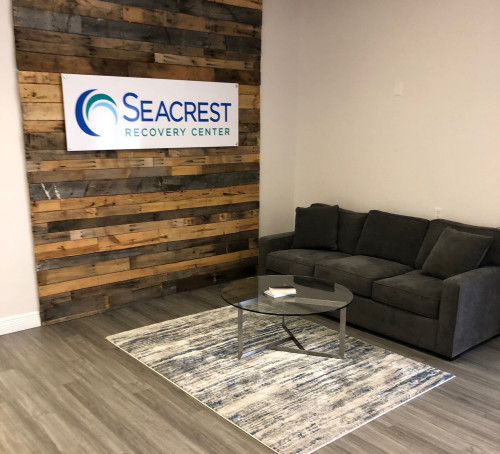
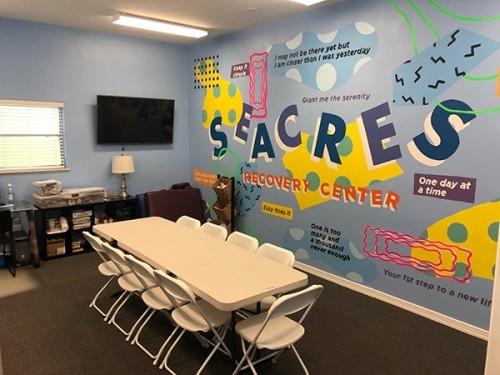




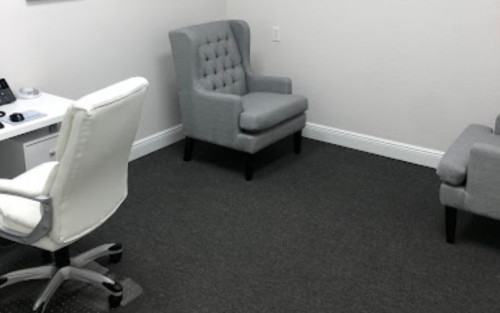
Seacrest Recovery Center Florida
Treatment Focus
This center treats substance use disorders and mental health conditions. You'll receive individualized care catered to your unique situation and diagnosis, learn practical skills for recovery, and make new connections in a restorative environment.
Primary Level of Care
Outpatient treatment offers flexible therapeutic and medical care without the need to stay overnight in a hospital or inpatient facility. Some centers off intensive outpatient program (IOP), which falls between inpatient care and traditional outpatient service.
Claimed
Recovery.com has connected directly with this treatment provider to validate the information in their profile.
Treatment Focus
This center treats substance use disorders and mental health conditions. You'll receive individualized care catered to your unique situation and diagnosis, learn practical skills for recovery, and make new connections in a restorative environment.
Primary Level of Care
Outpatient treatment offers flexible therapeutic and medical care without the need to stay overnight in a hospital or inpatient facility. Some centers off intensive outpatient program (IOP), which falls between inpatient care and traditional outpatient service.
Provider's Policy
We work with most major health insurance carriers. Often times insurance can cover up to 100% of your treatment costs. Contact us today to get started. Verification of benefits can be done right away.
Seacrest Recovery Center Florida
Seacrest Recovery Center Florida
About Seacrest Recovery Center Florida
Seacrest Recovery Center Florida provides outpatient treatment for addiction and co-occurring mental health conditions. They guide clients through a personalized 3-Phase program for a comprehensive outpatient experience. Their levels of outpatient care include partial hospitalization programs (PHP), intensive outpatient programs (IOP), and outpatient programs (OP).
3-Phase Recovery
Seacrest Recovery Center Florida offers treatment in a 3-Phase program, with an initial assessment determining which phase clients start in. Phases 1 and 2 both have weekly 1:1 therapy sessions.
•In Phase 1, or the stabilization phase, clients attend a PHP 6-8 hours a day for 2 weeks.
•Next, clients move down into IOP, or Phase 2. IOP lasts 6-10 weeks, with treatment held 4-6 hours per day. Clients learn vocational skills and build a resume.
•In Phase 3, clients graduate into outpatient care. They attend evening sessions 10-12 hours per week.
Evidence-Based And Comprehensive
Seacrest Recovery Center Florida provides addiction and mental health treatment with a staff of therapists, nurses, and a medical director. Their therapists invite clients to 1:1 therapy sessions and group therapy to learn with their peers. Seacrest Recovery Center Florida uses cognitive behavioral therapy (CBT), solution-focused and strengths-based therapy, and dialectical behavioral therapy. They help clients manage anger with CBT and teach relapse prevention skills and communication strategies for life outside treatment.
A Supportive Recovery Community
Clients at Seacrest Recovery Center Florida can enjoy a supportive sober community and convenient treatment options. Seacrest Recovery Center Florida offers sober living accommodations for their PHP program and aftercare to support clients as they transition back into daily life. Their facility has indoor and outdoor community spaces with a focus on comfort and serenity.
Center Overview
Treatment Focus
This center treats substance use disorders and mental health conditions. You'll receive individualized care catered to your unique situation and diagnosis, learn practical skills for recovery, and make new connections in a restorative environment.
Joint Commission Accredited
The Joint Commission accreditation is a voluntary, objective process that evaluates and accredits healthcare organizations (like treatment centers) based on performance standards designed to improve quality and safety for patients. To be accredited means the treatment center has been found to meet the Commission's standards for quality and safety in patient care.

Insurance Accepted
Cash Pay Rates
Estimated Cash Pay Rate
Center pricing can vary based on program and length of stay. Contact the center for more information. Recovery.com strives for price transparency so you can make an informed decision.
Meet Your Care Team

Matthew D’Urso
Clinical Director
LHMC

Gil Lichtschein
Medical Director
M.D.

Nathalia Poses
Physicians Assistant-Certified
PA-C

Maggie Zagorova
Primary Therapist
LMHC
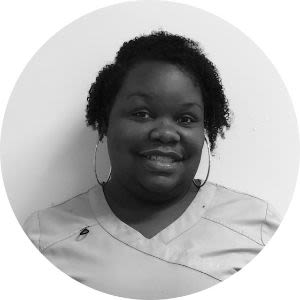
Mathilda Dameus
Nurse
LPN
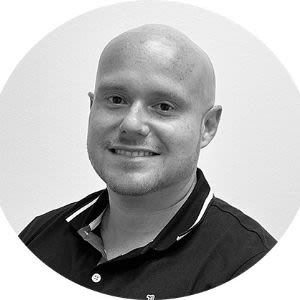
Henry Zelaya
Primary Therapist
MSW
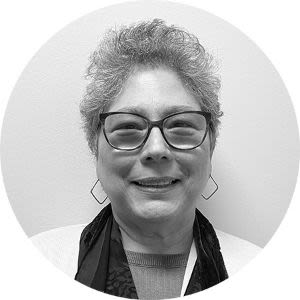
Carmen Romero
LMHC
Primary Therapist

Jamie McKinnies
Admissions Manager




Levels of Care








Your Care Options
Specializations
Day Treatment
In a PHP, patients live at home but follow an intensive schedule of treatment. Most programs require you to be on-site for about 40 hours per week.
Drug Addiction
Drug addiction is the excessive and repetitive use of substances, despite harmful consequences to a person's life, health, and relationships.
Alcohol
Using alcohol as a coping mechanism, or drinking excessively throughout the week, signals an alcohol use disorder.
Who We Treat
Approaches
Twelve Step
Incorporating spirituality, community, and responsibility, 12-Step philosophies prioritize the guidance of a Higher Power and a continuation of 12-Step practices.
Holistic
A non-medicinal, wellness-focused approach that aims to align the mind, body, and spirit for deep and lasting healing.
Evidence-Based
A combination of scientifically rooted therapies and treatments make up evidence-based care, defined by their measured and proven results.
Therapies
1-on-1 Counseling
Patient and therapist meet 1-on-1 to work through difficult emotions and behavioral challenges in a personal, private setting.
Family Therapy
Family therapy addresses group dynamics within a family system, with a focus on improving communication and interrupting unhealthy relationship patterns.
Twelve Step Facilitation
12-Step groups offer a framework for addiction recovery. Members commit to a higher power, recognize their issues, and support each other in the healing process.
Art Therapy
Visual art invites patients to examine the emotions within their work, focusing on the process of creativity and its gentle therapeutic power.
Life Skills
Teaching life skills like cooking, cleaning, clear communication, and even basic math provides a strong foundation for continued recovery.
Conditions We Treat
Post Traumatic Stress Disorder
PTSD is a long-term mental health issue caused by a disturbing event or events. Symptoms include anxiety, dissociation, flashbacks, and intrusive thoughts.
Anxiety
Anxiety is a common mental health condition that can include excessive worry, panic attacks, physical tension, and increased blood pressure.
Depression
Symptoms of depression may include fatigue, a sense of numbness, and loss of interest in activities. This condition can range from mild to severe.
Codependency
Codependency is a pattern of emotional dependence and controlling behavior. It's most common among people with addicted loved ones.
Stress
Stress is a natural reaction to challenges, and it can even help you adapt. However, chronic stress can cause physical and mental health issues.
Trauma
Some traumatic events are so disturbing that they cause long-term mental health problems. Those ongoing issues can also be referred to as "trauma."
Anger
Although anger itself isn't a disorder, it can get out of hand. If this feeling interferes with your relationships and daily functioning, treatment can help.
Substances We Treat
Cocaine
Cocaine is a stimulant with euphoric effects. Agitation, muscle ticks, psychosis, and heart issues are common symptoms of cocaine abuse.
Prescription Drugs
It's possible to abuse any drug, even prescribed ones. If you crave a medication, or regularly take it more than directed, you may have an addiction.
Benzodiazepines
Benzodiazepines are prescribed to treat anxiety and sleep issues. They are highly habit forming, and their abuse can cause mood changes and poor judgement.
Co-Occurring Disorders
A person with multiple mental health diagnoses, such as addiction and depression, has co-occurring disorders also called dual diagnosis.
Drug Addiction
Drug addiction is the excessive and repetitive use of substances, despite harmful consequences to a person's life, health, and relationships.
Heroin
Heroin is a highly addictive and illegal opioid. It can cause insomnia, collapsed veins, heart issues, and additional mental health issues.
Synthetic Drugs
Synthetic drugs are made in a lab, unlike plant-based drugs like mushrooms. Most synthetic drugs are either stimulants or synthetic cannabinoids.
Languages
Aftercare
Care Designed for Your Needs
Personal Amenities
Amenities
Activities
Off-Site Activities
Off-Site Amenities






